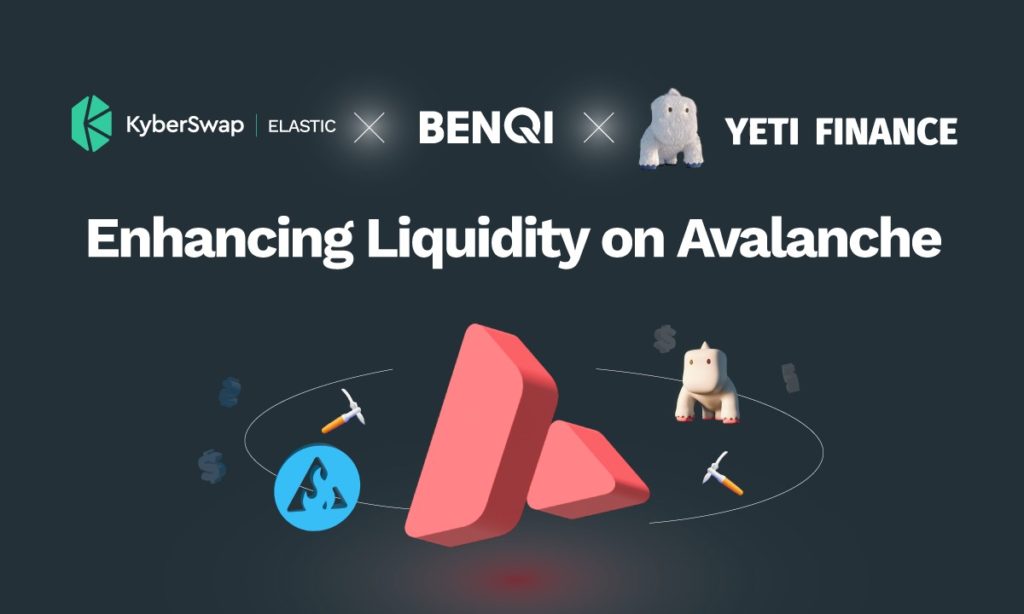At the end of this summer, from Sept. 15 to 16, the Aeternity Universe Two conference is set to take place at Burgscheidungen Crypto Castle in Germany.
The Aeternity Universe Two conference follows the hugely successful first edition, which took place in Prague on Sept. 20 and 21 in 2019.
This September, attendees have the opportunity to become a part of Aeternity’s blockchain history! The Aeternity Universe Two conference, consisting of the conference itself on Sept. 15 and 16 as well as a grand finale of the hackathon on Sept. 17 and 18, stands to draw in hundreds of blockchain developers, researchers, entrepreneurs, designers and enthusiasts all set on a common goal: to exchange knowledge, experiences, and best practices in an effort to grow and perfect the world of blockchain technology.
The Aeternity Universe Two conference will have its doors open for everyone and will present a unique business opportunity for all interested parties to engage in networking and showcase events. Numerous blockchain experts and backers will be available for conversation in a friendly in-house atmosphere, the perfect environment for ideas to grow.
Moreover, a wide range of development workshops will take place during the conference, facilitating intense knowledge transfers and allowing blockchain experts to gain info on the latest trending areas. Of course, Aeternity’s blockchain development team will be readily available to provide further insights into protocol development and the state of Aeternity.
Additionally, Aeternity Universe Two will feature a fully immersive art experience — both via 3D art and VR — which is sure to draw the attention of various artists and designers from the blockchain sphere. Allowing diverse sets of artists to engage with NFT technology, as well as physical and digital crypto art, will be sure to provide inspiration for future pieces.
Finally, the location itself — Crypto Castle. Dating back to the first millennia, it is one of the oldest, best-preserved baroque secular buildings in the Thuringian and Saxon-Anhalt region. Well-preserved and renovated, the castle now includes a dedicated hacker’s lab that is utilizing Aeternity’s blockchain technology.
Early registration for Aternity Universe Two is open, as is the registration for the Aeternity Universe Hackathon that began remotely on Aug. 1 via DevPost.
The event is fully powered by Aeternity. Founded in 2016 by Yanislav Malahov, the Aeternity blockchain project was born out of a desire for a more fair internet supported by scalable, open-source and cryptographic software, with a commitment to technical excellence.
The Aeternity blockchain itself launched as the public Aeternity mainnet in 2018. It is now a blossoming community of enthusiasts supported via the Aeternity crypto foundation.
Engineered to scale and last, Aeternity is an easily accessible blockchain platform for the global public. With numerous innovative functionalities and performance far ahead of earlier blockchains, Aeternity allows its users and community to seamlessly venture into the new era of society, economy and digital interactions. Its core components are written in the functional programming and fault-tolerant language Erlang, and its Sophia smart contracts are also functional.
Singapore, Aug. 17 — BENQI and Yeti Finance have chosen to partner with the highly capital efficient KyberSwap in a joint initiative to enhance liquidity and provide the best rates for sAVAX and YUSD tokens on Avalanche (AVAX).
This first phase of this joint initiative is set to bring liquidity providers over $200,000 in liquidity mining rewards, with more incentives to come in the near future.
BENQI is a decentralized non-custodial liquidity market and liquid staking protocol built on Avalanche. Benqi Liquid Staked AVAX (sAVAX) is the token that users receive when staking their AVAX on the Benqi Liquid Staking (BLS) protocol. AVAX holders can get sAVAX by staking AVAX on BENQI.
This is not the first time BENQI has partnered with KyberSwap for its capital efficiency benefits. Learn about BENQI’s first joint initiative with KyberSwap.
Yeti Finance is a cross-margin lending protocol on Avalanche that allows users to borrow up to 21-fold against their portfolio of liquidity provider (LPs) tokens, staked assets such as sAVAX and yield-bearing stablecoins in a single debt position for zero interest. Borrowers receive YUSD, an overcollateralized stablecoin that can be swapped for additional assets and subsequently re-deposited into Yeti Finance to build a leverage position.
What is KyberSwap Elastic?
KyberSwap’s newest protocol, dubbed Elastic, is a tick-based automated market maker that gives LPs the advantages of concentrated liquidity and the flexibility to achieve capital efficiency and manage risks.
With concentrated liquidity, LPs have the flexibility to supply liquidity to an Elastic pool, either by concentrating the liquidity to a narrower price range or setting it to a wider price range. Concentrated liquidity would use the pool’s liquidity more efficiently, mimicking much higher levels of liquidity and achieving better slippage, volume and earnings for LPs while a wider range would ensure liquidity for uncorrelated token pairs such as USD Coin (USDC) and Ether (ETH) to remain active even with big price swings during high market volatility.
KyberSwap Elastic also has a reinvestment curve, which compounds fees by automatically reinvesting the fee earnings of LPs back into the liquidity pool so LPs earn higher APY while saving time.
LPs on KyberSwap Elastic can also choose from multiple fee tiers to select the best-suited rates for individuals, taking into consideration factors such as token volatility, individual risk appetites and more. In addition, KyberSwap Elastic comes with a Just-In-Time (JIT) Attack Protection feature, which protects LP earnings from snipe attacks that would reduce the earnings of other honest LPs. So, LPs can earn securely while enjoying peace of mind.
Starting from Aug. 17, 2022, liquidity providers can add liquidity to the eligible sAVAX and YUSD pools on KyberSwap Elastic on Avalanche and earn KNC, QI and YETI rewards.
With KyberSwap’s Elastic protocol, LPs can enjoy benefits such as concentrated liquidity and compounding fees, providing higher capital efficiency and optimized rewards. KyberSwap Elastic also has JIT protection, so LPs will have their earnings better protected and enjoy better peace of mind.
BENQI and Yeti finance pools on KyberSwap Elastic: Avalanche
Eligible pools and fee tiers:
- sAVAX and AVAX: 0.01%
- sAVAX and YUSD: 0.04%
- USD Coin (USDC) and YUSD: 0.01%
A full list of eligible pools for yield farming on Avalanche can be viewed on kyberswap.com.
KyberSwap: Benefits for the BENQI and Yeti ecosystem
For traders:
- Best swap rates for sAVAX and YUSD through decentralized exchange (DEX) aggregation while letting users identify other tokens even before they trend or moon via on-chain metrics.
For LPs:
- Concentrated liquidity for sAVAX and YUSD pairs and any other tokens, stables and non-stables
- Auto-compounded LP fees
- Bonus liquidity incentives through yield farming
- Sniping and JIT attack protection to protect earnings for BENQI and Yeti LPs.
For developers
DApps can integrate with KyberSwap’s pools and aggregation API to provide the best rates for their own users, saving time and resources.
With these benefits in mind, KyberSwap is proud to partner with BENQI and Yeti Finance in this initiative to enhance liquidity on Avalanche for the benefit of all four ecosystems.
About Kyber Network
Kyber Network is building a world where any token is usable anywhere. KyberSwap.com, its flagship DEX aggregator and liquidity platform, provides the best rates for traders in DeFi and maximizes returns for liquidity providers.
KyberSwap powers 100-plus integrated projects and has facilitated over $9.9 billion worth of transactions for thousands of users since its inception. It is currently deployed across 12 chains, including Ethereum, BNB Chain, Polygon, Avalanche, Fantom, Cronos, Arbitrum, Velas, Aurora, Oasis, BitTorrent and Optimism.
Digital asset brokerage Genesis said on Wednesday that CEO Michael Moro is stepping down and the company is slashing 20% of its workforce, the latest casualties as the cryptocurrency market unwinds.
Derar Islim, Genesis’ operating chief, will take over as interim CEO while the company searches for a permanent replacement, the company said in a statement.
Genesis is a unit of Digital Currency Group, the crypto investor and conglomerate founded by Barry Silbert. Genesis was early in the market, launching the first over-the-counter crypto trading desk in 2013, and then expanding to become a major lender.
During the 2021 crypto boom, Genesis boosted its book dramatically. Loan originations surged more than sevenfold to $131 billion, and the company increased headcount by 22% to 170 employees. By mid-2022, that number had swelled to 260. A cut of 20% equates to the loss of about 52 jobs.
The rapid turn in the crypto market this year, which sent bitcoin and ethereum tumbling, wiped out firms whose businesses were tied directly to prices of digital assets. Hedge fund Three Arrows Capital, or 3AC, filed for bankruptcy as did brokerage Voyager Digital and crypto lender Celsius Network.
While Genesis has weathered the storm better than other players in the market, the firm suffered significant losses due its exposure to 3AC. In July, Genesis filed a $1.2 billion claim against 3AC because of breached loans.
“Genesis was not immune to the market drop and the damage to overall sentiment,” the company said in a report on second-quarter market observations. “As we’ve stated publicly, Genesis had loan exposure to Three Arrows Capital. Our parent company DCG assumed the liability related to losses on these loans, leaving our balance sheet healthy so Genesis could continue to be a source of strength for our clients.”
Moro, who joined Genesis in 2015 and took over as CEO the following year, will stay on during the leadership transition, Genesis said. The company said it also recently hired new executives as chief risk officer, chief compliance officer and chief technology officer.
Follow Crypto Intelligence on Google News to never miss a story






